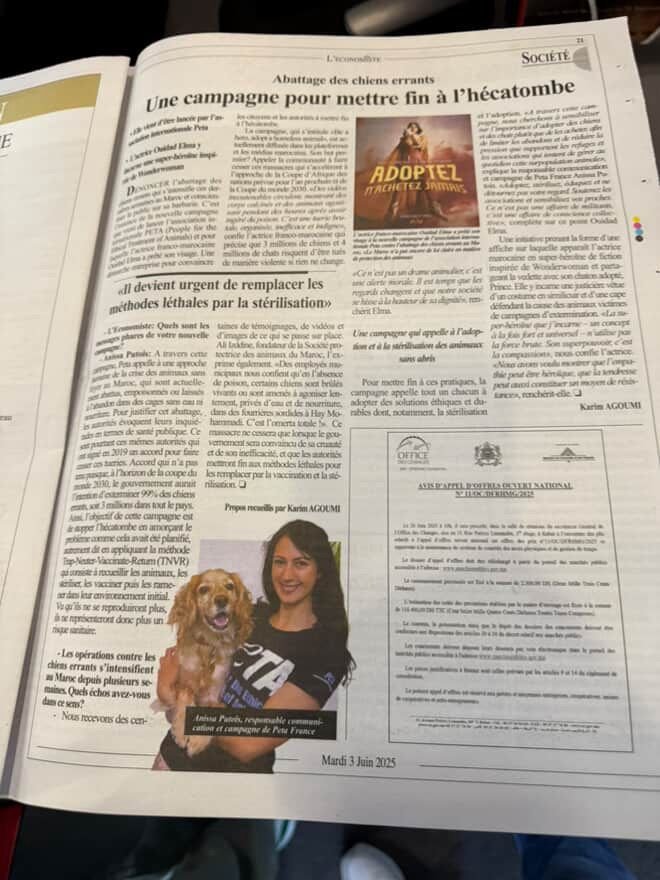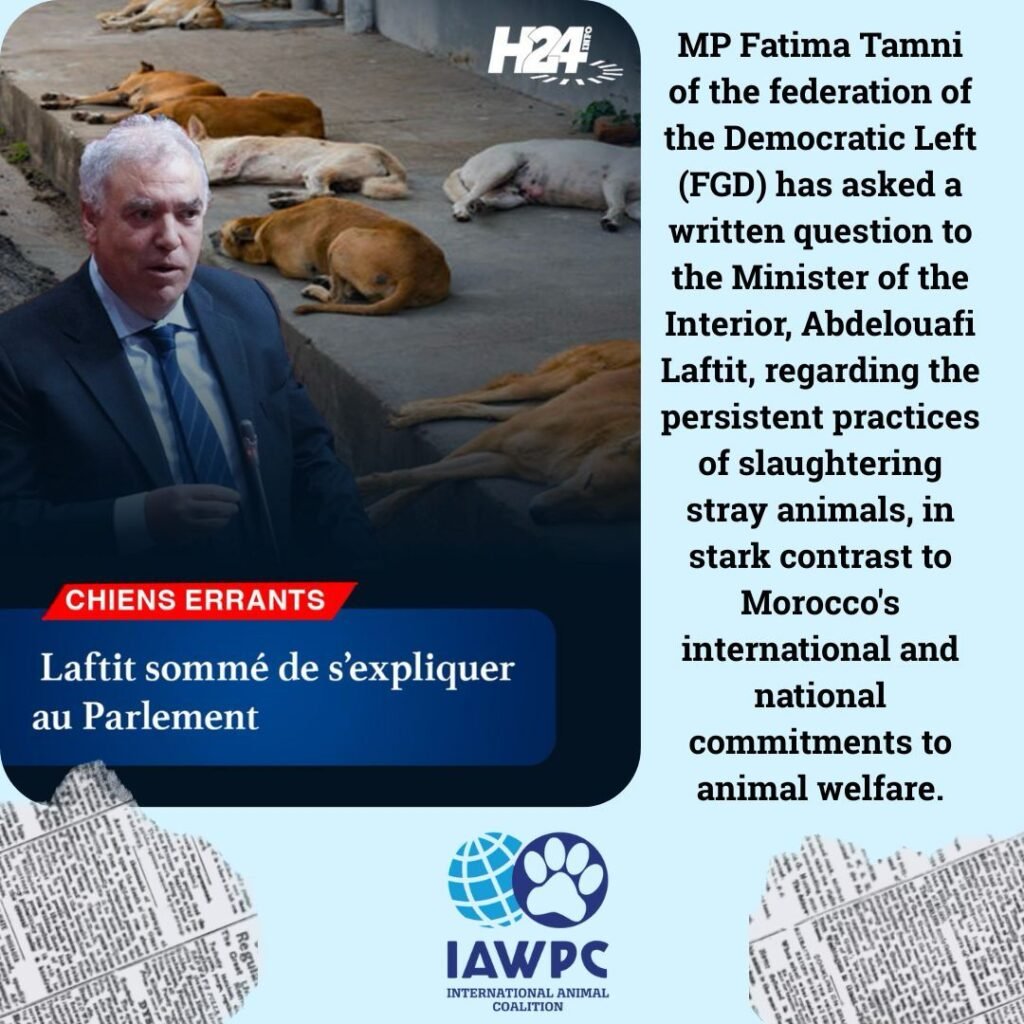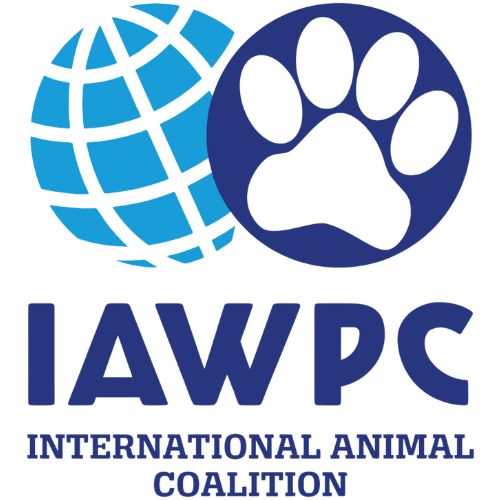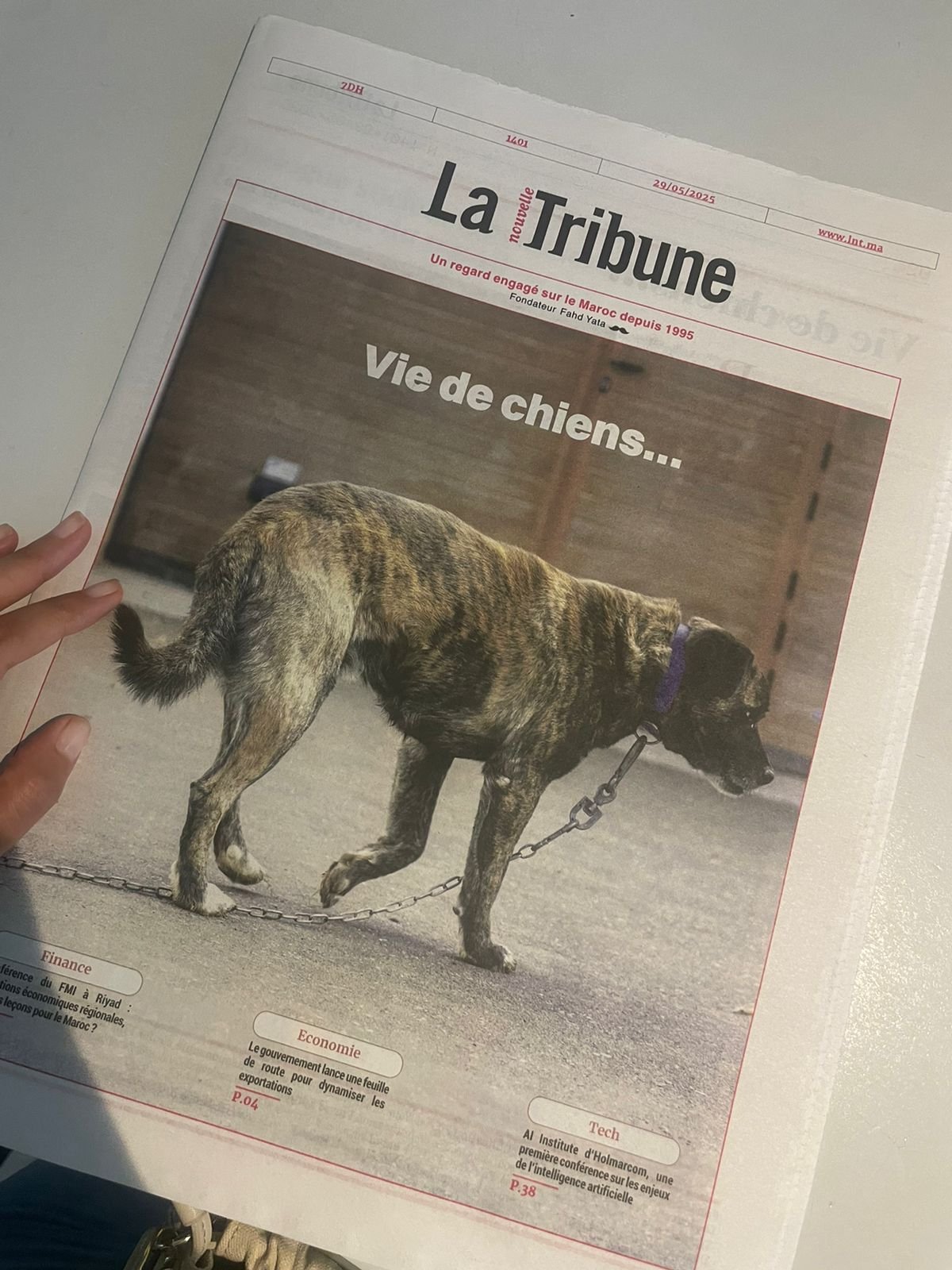Inside Morocco there has been a number of recent developments, and media coverage for the campaign to stop the slaughter of street dogs.
Journalist Karima Agouti wrote:
In Morocco, operations targeting stray dogs are intensifying, with disturbing videos circulating online.
“We receive testimonies every day”
An international campaign has just been launched to denounce the killings and demand alternative solutions to these culls.
For Janina Pinto, communications manager for the British NGO Petit Frère (Little Brother), “there is growing evidence that shows the massacre of free-roaming dogs across Morocco. This massacre takes several forms, including unacceptable acts of public violence such as brutal trapping, poisoning, and shooting. It also includes taking dogs away to be killed out of sight.”
Faced with this violence, the NGO has launched a campaign to encourage sterilisation instead. “The UN Convention on the Rights of the Child (UNCRC) has recognised the harmful effects this type of violence has on children. Article 19 of the Treaty, expanded in General Comment 26, clearly states that children must be protected from all forms of violence, including violence inflicted on animals,” she says.
“It’s becoming urgent to replace lethal methods with sterilisation”
What is your objective?
Our campaign calls for the Moroccan authorities to abandon lethal methods of population control and instead implement sterilisation strategies, such as CNVR (Catch, Neuter, Vaccinate, Return). These programmes are proven to be effective and humane.

What makes the situation urgent?
It’s not just about animal protection. The violence also harms children and society at large. The UNCRC emphasises that a healthy environment for children includes contact with nature and animals. Morocco has ratified the treaty and is therefore under a strict obligation to protect children from such harm.
So this is also a children’s rights issue?
Yes. This is a matter of child protection. It’s a violation of both children’s rights and animal welfare.
What’s your message to the Moroccan authorities?
There are humane, effective and sustainable alternatives. We are calling on Morocco to adopt CNVR methods, with support from international partners if needed.
A campaign that calls for adoption, not killing
To end these practices, the campaign calls on each citizen to choose adoption over abandonment. On social media, shocking images are shared with a powerful message: “Adopt, don’t buy.”
Posters show dogs with slogans like “I was killed in front of a school” or “I was shot while nursing my puppies”.
“There are better solutions”, says Janina Pinto, urging Morocco to embrace sterilisation and reject violence.
———————————-
There was also coverage for news that MP Fatima Tamni of the federation of the Democratic Left has spoken up in Parliament on the subject

As well as this there was also a prominent article on the plight of Morocco’s street dogs in national newspaper La Tribune
An extract from the article read: “So why are animal protection associations, dozens of high-impact posts on social media and the mobilisation of numerous public figures, raising concerns about a troubling trend of animal abuse and the mass killing of stray dogs?
“What we clearly see in the videos circulating everywhere are overzealous agents abusing traumatised, bloodied animals, at best caged. Is this the recommended approach for the “Trap” phase of the TNVR programme? To what extent are the authorities monitoring this phenomenon, which is described as “excesses”? Where are the “more ethical” efforts that are supposed to be the norm?

“In reality, despite good intentions and grand speeches, there are many obstacles on the ground. First, there is the mindset of some of our fellow citizens who place little or no value on animal life, particularly dogs, who are mistreated deliberately and ostentatiously, almost culturally.
This is what emerges from the footage we see; it is not even reluctantly that the abuse is inflicted by those involved. On the contrary, there is a kind of emotional detachment in carrying out the task that is chilling. Thankfully, more and more people are speaking out, defending the animal cause, and especially the close bond many share with dogs. And it feels like a true massacre would be happening unchecked if it weren’t for a few deeply committed individuals turning attention to what is happening in certain towns or cities.”




